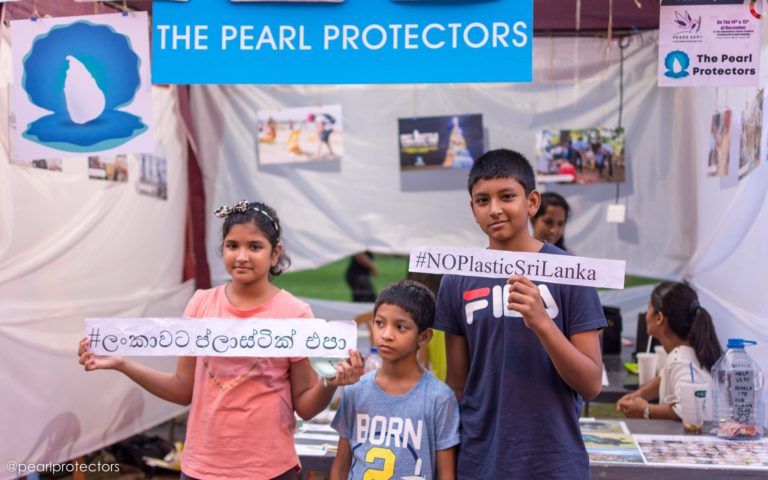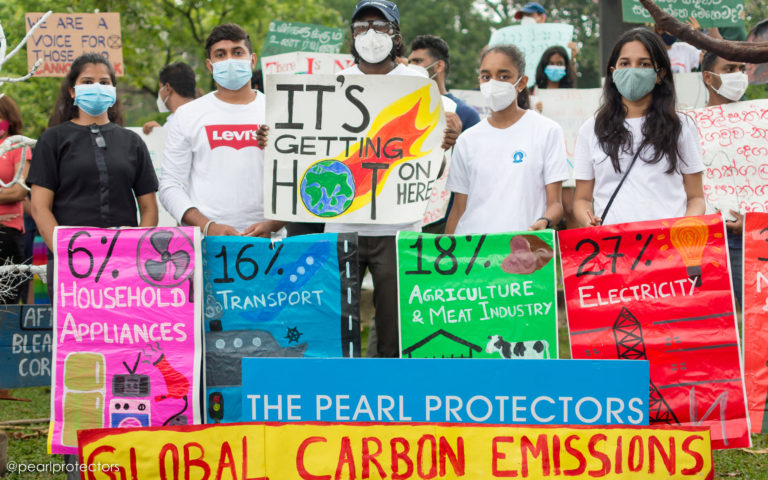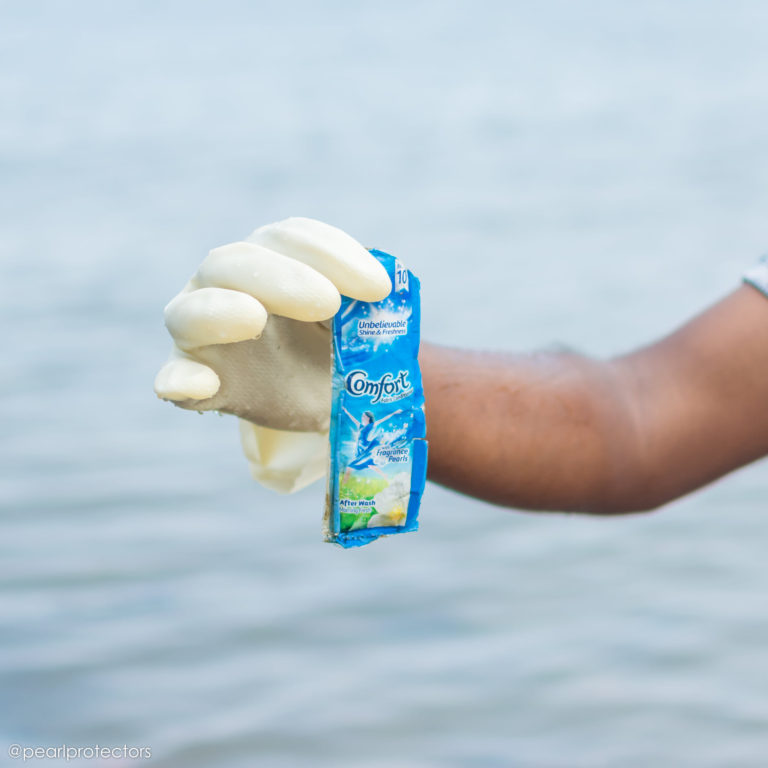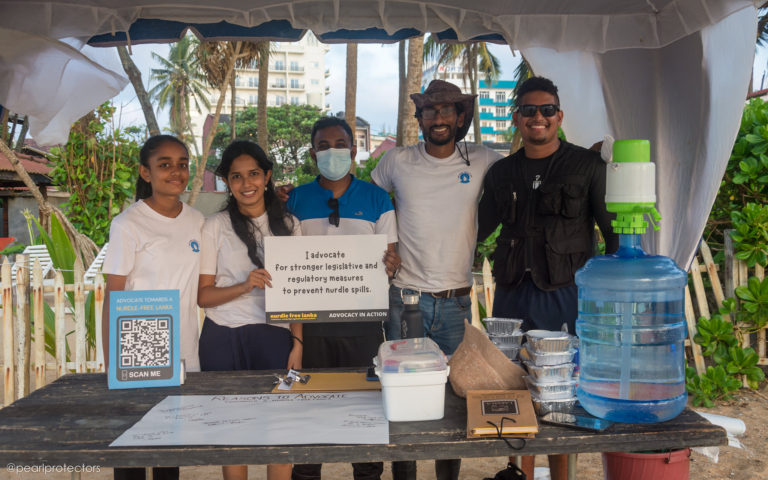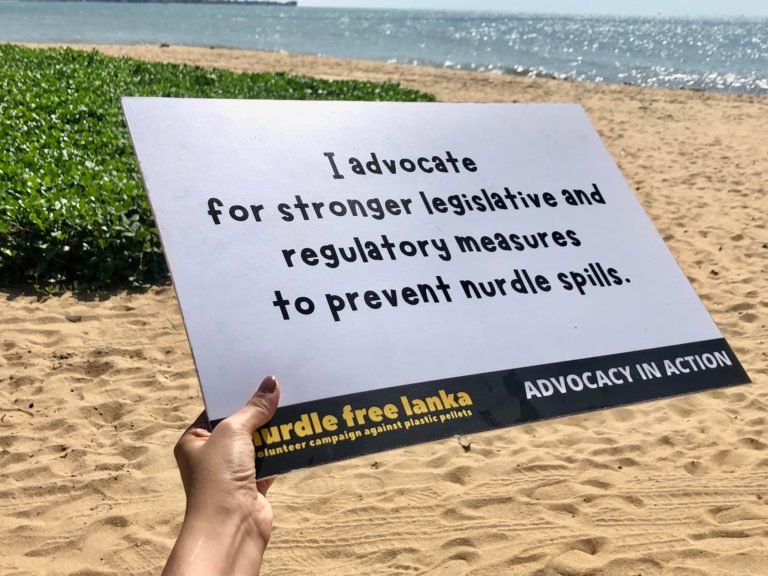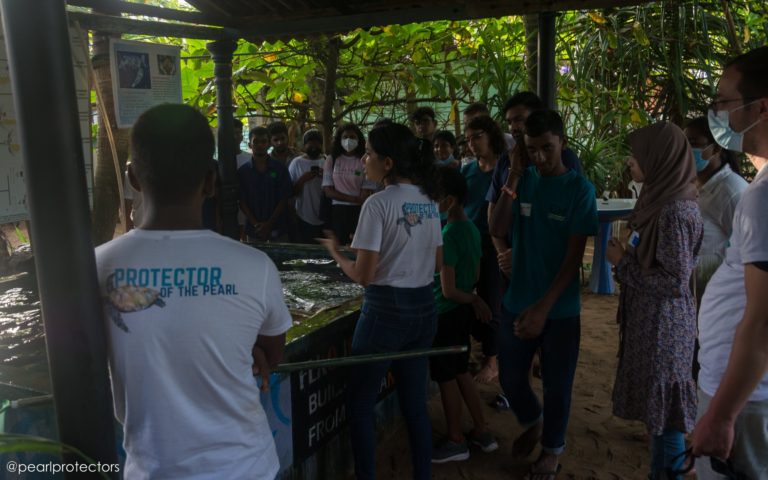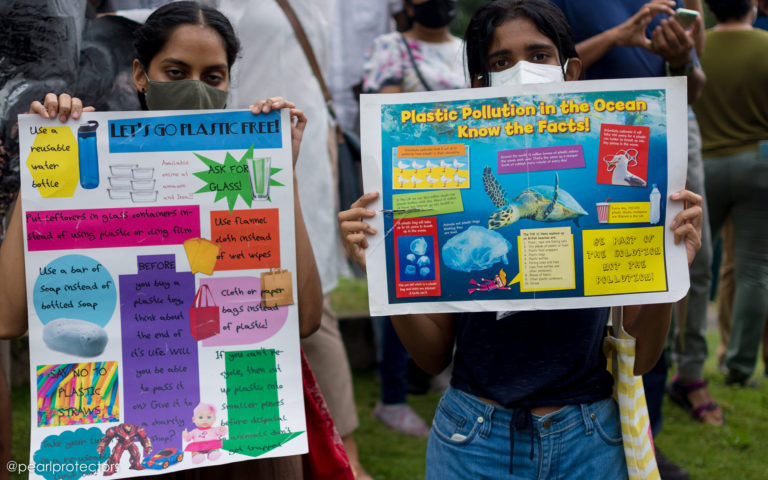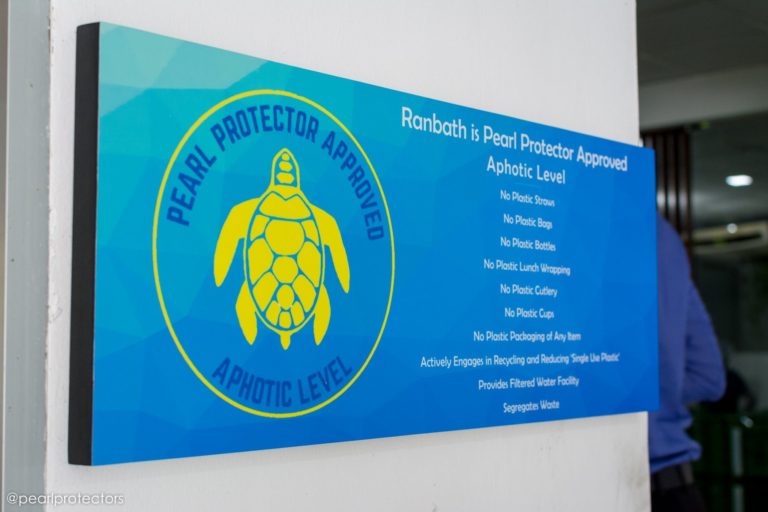Safeguarding the Ocean with Advocacy
Ocean advocacy plays a key role in addressing issues at the source and bringing about change that trickles down to the grassroot. Our advocacy endeavours include creating public support for policy and legislative changes, as well as, building public recognition of the problems that the ocean is facing.
What we do
Towards efficacious bans on plastics and microplastics
Our Pearl Protector Approved certificate intends to pave the way for a mandatory phase-out of plastics by trialling a voluntary phase-out of plastics in restaurants.
During our beach cleanups, we conduct surveys on sachets and microbeads and brand audits to lobby for adequate bans.
Check out our “Say No To Plastic” video!
Advocacy Campaign on Nurdles
After the MV X-Press Peal maritime disaster, we created an online petition to bring about domestic legislative changes to prevent nurdle pollution before it ends up polluting our beaches.
We continue to keep the conversation on the impacts of nurdles going among the public and are working collectively with international organizations to push for international regulations to prevent nurdle loss.
Advocacy Stalls
We prioritize engaging Sri Lankan youth in advocacy and inspiring young ocean advocates. Our Advocacy Stalls educate and engage youth in legislative solutions to existing threats faced by the ocean.
Keeping Marine Protected Areas protected
Through the “Protect Wedithalathive Nature Reserve” advocacy campaign, in coalition with several other conservation organizations, we called upon all concerned individuals to stand up against the attempt to de-gazette a section of the Wedithalative Nature Reserve, which is Sri Lanka’s third largest Marine Protected Area (MPA), to make way for an aquaculture project.
We also produced reports on case studies concerning the Impact on the Marine Environment by Shrimp Farms (both local and international) and the Impacts of Litopenaeus vannamei on aquaculture. We handed over these reports to the relevant authorities and discussed our stance on why Wedithalathive needs to stay protected.
Urging Environmental Impact Assessments
After a beach nourishment project was conducted in Mount Lavinia, without an Environmental Impact Assessment, which denies the opportunity for public opinion, we have been urging relevant authorities to conduct EIAs as required by the law and interpret the law in the best interests of the environment. We have also been educating the public on the importance of EIAs and encouraging the public to access EIAs on development projects in their areas and send comments.
Legal protection for marine species
While Sri Lanka is home to about 63 species of sharks, only five enjoy legal protection. While all five species of sea turtles do enjoy legal protection, the lack of enforcement still exposes them to threats of poaching for meat and eggs, illegal and unethical hatcheries and even ghost nets and other plastic pollution. While whale watching is regulated in Sri Lanka, illegal and unethical practices still take place.
By creating awareness via newspaper articles, workshops and social media campaigns, we are working towards building public recognition of the need to legally protect vulnerable marine species while also engaging in conversation with subject experts and relevant authorities to bring about legislative changes.
We also conducted “Turtle Patrol”, where our volunteers patrolled the poacher-infested beaches (Wellawatta, Dehiwala and Mount Lavinia) throughout the night, along with the Sri Lanka Coast Guard, to protect nesting sea turtles and their eggs. We also joined Sri Lanka Coast Guard’s ex-situ conservation endeavors to safely release the hatchlings to the ocean as soon as they hatched, which does not happen in Sri Lanka’s unethical and currently illegal private hatcheries.
Public demonstrations
We have co-organized several silent and peaceful public demonstrations to emphasize the ongoing global ecocide and to demand urgent action from the elected leaders and authorities who are primarily vested with the duty of protecting the environment for us.
Ocean Law Ed
Education is at the heart of our work in advocacy. Our online educational series “Ocean Law Ed” aims to break down the existing marine conservation laws into a simpler form, to create awareness among the public. This would help the public to ensure that laws are enforced, by informing relevant agencies when laws are violated, while also exploring the areas in legislation that need to be updated or amended.

